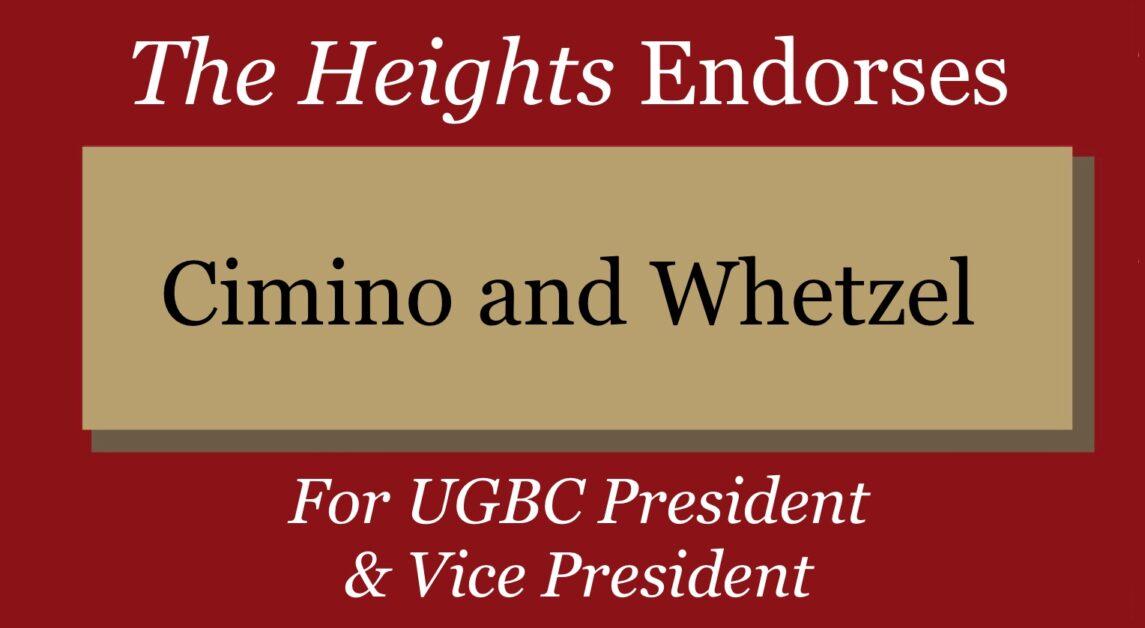The Elections Committee’s sanctions changed the outcome of the 2020 Undergraduate Government of Boston College election. The EC handed down seemingly inconsistent punishments for campaign violations, but it has refused to publicly share how it decides sanctions, who comprises the EC, or even how many members it has.The EC has denied multiple requests from The Heights to name its members. This lack of transparency is unacceptable for a group making decisions that directly impact the student body.
Journalists cannot investigate any potential conflicts of interest from a group with the capacity—and demonstrated willingness—to alter elections if that group will not release the identities of its members. The anonymity raises issues of potential bias: Because it is not publicly known who is on the EC, there is potential for its members to be friends or roommates of candidates, or related to them in some other capacity. The EC states that it is fully separate from UGBC, but both are overseen by Paul Murphy, the associate director for student programming in the Office of Student Involvement. In order to be fully separate, they need to be managed by two different BC staff members.
The EC must ensure that its guidelines are updated to reflect all of the policies it practices for future elections.
The team of Dennis Wieboldt and Lorenzo Leo, both MCAS ’23, was deducted 25 votes for sending an unsolicited GroupMe message. Under EC guidelines, that sanction—the first and only applied to their campaign—would have simply been a warning and counted as a Level 1 or 2 sanction during regular campaigning. Instead, it was treated as a Level 3 Sanction, which results in the deduction of votes. While the EC said in an email to The Heights that this is routine practice for election-day violations, and this practice is communicated to teams, it is not in the official elections guidelines.
The deadline to submit campaign violations should also be extended to 24 hours after the voting deadline. The current deadline to submit campaign violation complaints is 5 p.m. on election day—meaning that election day is essentially a free-for-all, as it is unlikely that many same-day complaints can be handled by the EC.
Teams should also be given the right to defend their actions before sanctions are handed down, especially given the seemingly arbitrary nature of the EC’s sanctions. After multiple requests from The Heights, the EC did not explain how or why it came to election-altering decisions.
The EC must also reevaluate its guidelines. The EC should explicitly state that bribery is prohibited—which is not outlined in the current campaign guidelines. The sanctions themselves need to be reconsidered. In an email to The Heights, the EC said it did not want to influence the results of the election, yet by taking away votes in order to sanction teams, it ended up doing exactly that. Lowering the amount of money permitted to be spent on a campaign, social media privileges, or campaigning time would be a better method of sanctioning.
To address the issue of punishing election day campaign violations—for which it would not make sense to penalize candidates by placing limits on their campaign methods—the EC should prohibit campaigning on election day. Such a guideline would make the distinction clearer in regard to what constitutes a violation: Any action encouraging people to vote, whether physically or digitally, would result in sanctioning. This guideline would also diminish the problem of students voting for certain candidates because these candidates sent them a direct message or stopped them on their way home from class on election day.
The EC has an immense amount of responsibility in ensuring that campaigns are run fairly, and it did not rise to the challenge during the 2020 UGBC election. The committee must be sure to increase its transparency and implement the above changes before a future election, or it risks repeating the same mistakes.












